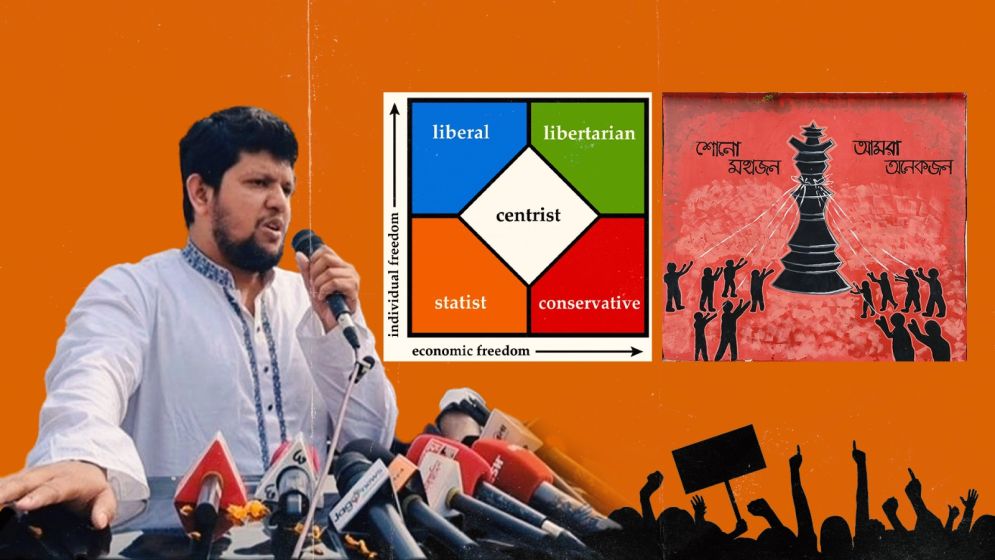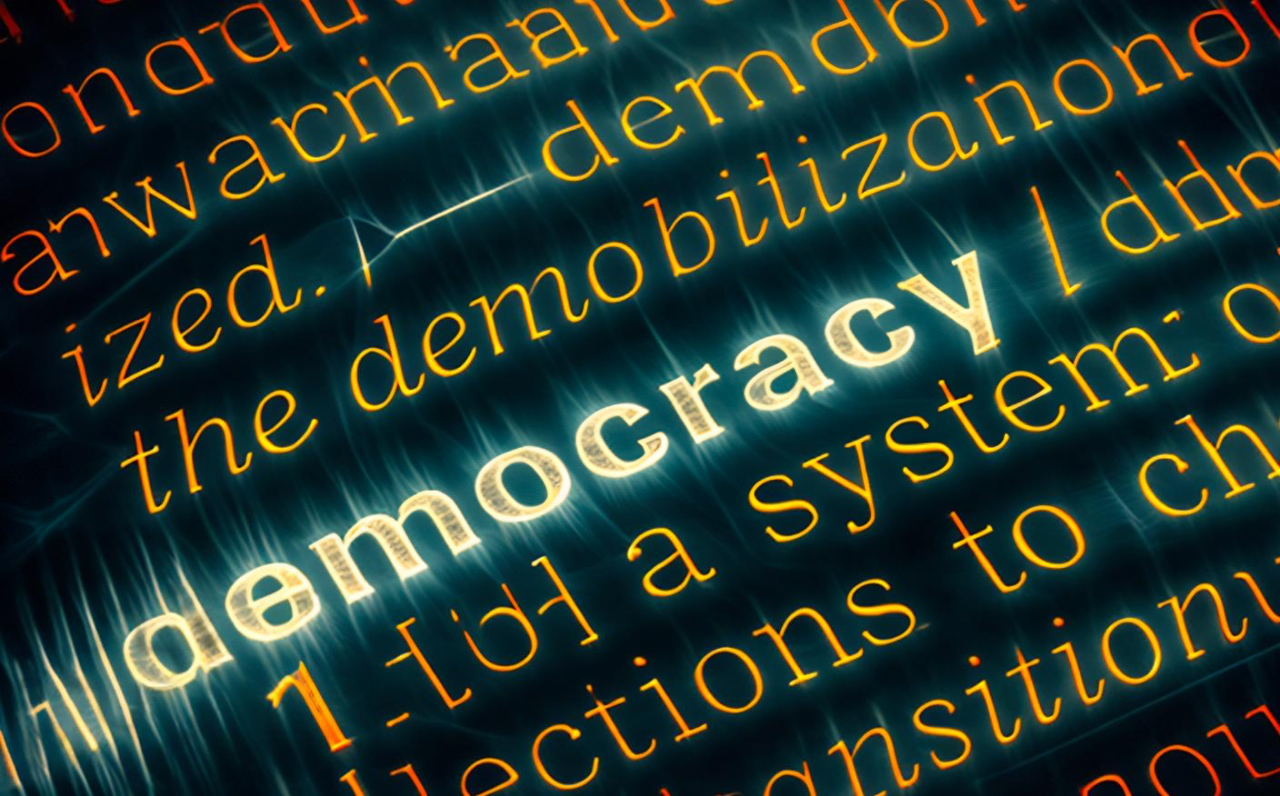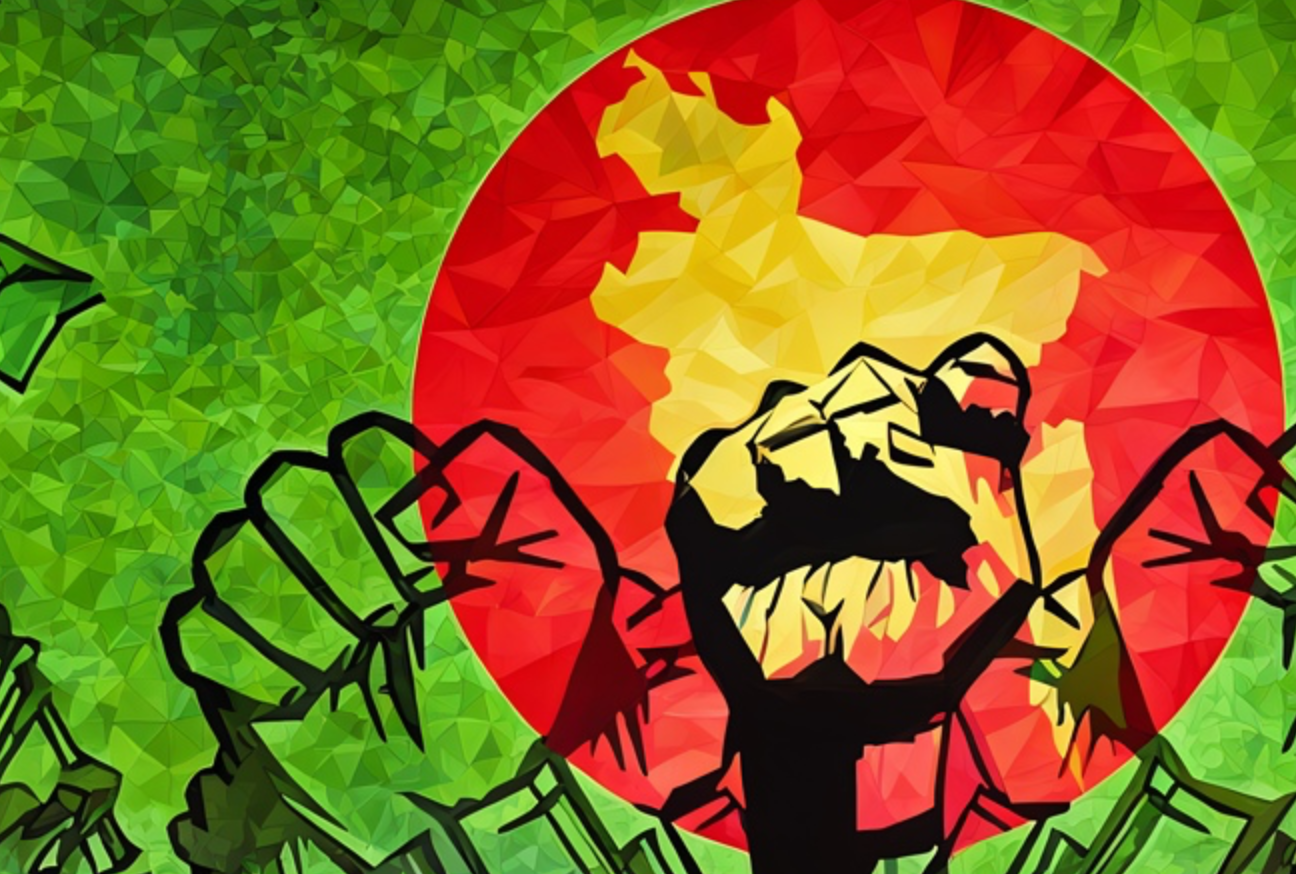Backing Mahfuj Alam on ‘71 issue isn’t politics. It’s conscience

Much like Nelly Furtado once sang– “All good things come to an end”-- the interim administration in Bangladesh has learned that political grace periods don’t last forever.
The early calm that followed its ascent after a dictator’s ouster is officially over. What was once a quiet backing of stability has transformed into a constant, scrutinizing gaze. Every decision of the government is now dissected with the precision of a forensic audit.
Not even the unusually smooth Ramadan– marked by record-low essential prices, uninterrupted electricity, and widespread enthusiasm for a campaign to retain Nobel laureate Dr. Muhammad Yunus in public life for at least five years– could extend the goodwill.
The chapter of BIDA Chairman Ashik Chowdhury dazzling foreign investors with a “never-before-seen” pitch at the Bangladesh Investment Summit has also closed.
The narrative and the public sentiment have essentially shifted. With the Bangladesh Nationalist Party (BNP) pressing harder than ever for elections, the interim government finds itself navigating on what many would describe as borrowed time.
And now, with Jamaat-e-Islami–a major political actor with its own complex legacy– echoing BNP’s call for a clear electoral timeline, speculation of a split opposition is losing steam.
Hopes that Jamaat might align with the National Citizen Party (NCP) to build an anti-BNP coalition are increasingly dim. The political arithmetic is changing by the day.
The formal sidelining of the Awami League under a “temporary ban” using the amended Anti-Terrorism Ordinance has erased any remaining possibility of its participation in electoral politics.
The space it once perceived to be occupied–a center-left lane– now lies vacant. And in a deeply polarized landscape, that vacuum matters.
Jamaat, with its rigid right-wing identity, is not a viable inheritor of that space. The logical contender is the NCP, a party with an arsenal of bright, policy-oriented young leaders.
But the question is: which version of the NCP will emerge?

Who
will emerge?
There are troubling signs.
Figures like Hasnat Abdullah and Sarjis Alam appear to be capitulating to the populist right, adopting an ideological posture that may play well in the short term but is unlikely to resonate in a country with a historical aversion to political extremism.
Bangladesh is not a nation drawn to hard-edged dogma; its political culture favors a softer, people-centric pragmatism.
Still, there is a promising countercurrent. Leaders like Nahid Islam, Tasnim Zara, and Akhter Hossain represent a genuine centrist alternative– thoughtful, reform-minded, and rooted in a vision of inclusive progress.
They embody a politics that neither retreats into nostalgia nor lunges toward radicalism.
And then, there is Mahfuj Alam.
Yes, Mahfuj Alam is not formally part of the NCP. He remains, for now, an adviser in the interim administration. But few are fooled.
His intellectual sway over the NCP’s leadership is undeniable– and when the election date is finally set, it’s widely assumed his next political home will be there.
That may be precisely what the NCP needs. In a party still defining its core, Mahfuj’s vision for the nation, for governance, and for civic responsibility could serve as the ideological compass it currently lacks– a stabilizing force in a noisy, erratic political theater.
The stakes became starkly visible with two Facebook posts he made on May 11– one still live, the other swiftly deleted– that detonated a firestorm on social media.
What he wrote was not just provocative; it was a direct confrontation with the ghosts of Bangladesh’s past and the ideological evasions that still haunt its politics.
Mahfuj argued, unequivocally, that the unresolved moral burden of 1971 must be addressed. That the collaborators of war crimes must offer public apologies.
That any serious political actor in Bangladesh must break, once and for all, with the pro-Pakistan narrative that underpinned Jamaat-e-Islami’s historical position.
He reminded readers that Pakistan committed genocide during the Liberation War– a truth long documented, seldom denied. Even if Pakistan were to offer a fresh apology, Mahfuj noted, it would still not absolve those in Bangladesh who have remained silent, or worse, defiant in the face of that historical truth.
His message was crystal clear: vague or revisionist rhetoric about the war must stop. So must the quiet infiltration of statecraft with ideologies that seek to erase the moral foundations of July– the very spirit of Bangladesh’s new founding.

A
lucid call
Typically, Mahfuj’s posts are cerebral, layered like abstract art– open to interpretation and deliberate ambiguity.
But this time, there was no mistaking his intention. He called out Jamaat and Shibir by name and demanded a reckoning with history. That stance unleashed a wave of vitriol from Islamist quarters, confirming– ironically– just how essential that confrontation is.
There is a legitimate argument to be made that taking the wrong side of history is not in itself a permanent stain.
Supporting a unified Pakistan during the volatile unraveling of the subcontinent in 1971, even after the March 25 genocide, may have seemed strategic to some at the time.
But to remain unrepentant, to continue denying moral accountability in a sovereign nation built on the very rejection of that ideology– that is a betrayal not just of history, but of citizenship.
Historical revisionism has its limits. It might be excusable if Jamaat had led a transformative moment since– something greater than 1971, something redemptive. But that moment never came.
And in the absence of it, the only honorable path is to acknowledge past wrongs.
Mahfuj did what centrist thinkers must often do: speak uncomfortable truths to both extremes. He did not do it to score points. He did it because the health of a democracy depends on the ability to resolve its foundational traumas– and because a centrist project, if it is to have moral weight, must be rooted in clarity, not evasion.
What followed only underscored the urgency of his argument. The hysteria from the far right– the digital mobs, the denouncements– exposed just how allergic parts of the political ecosystem remain to accountability.
In that chaos lies the clearest case yet for why Bangladesh needs a true centrist force.
One that neither romanticizes the past nor radicalizes the future. One that can hold the ideological center against both populist drift and revisionist rage.
The NCP has the personnel to become that force– but only if it aligns itself with the intellectual clarity and moral courage Mahfuj has begun to articulate.
Anything less would be politics as usual. And Bangladesh, in this moment of reckoning, deserves more.
—

